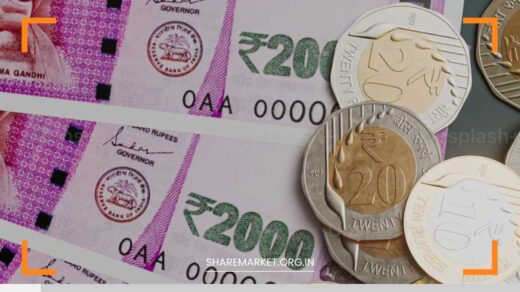Why Doesn’t Everyone Get Shares in an IPO?

Shares in an IPO
The Securities and Exchange Board of India (SEBI) Chairperson, Madhavi Puri Buch, recently addressed a notable shift in the allocation process of shares during initial public offers (IPOs).
Speaking at the CII Global Economic Policy Forum, Buch shed light on the discontinuation of the pro-rata system of allotment and the implications it had on the price-discovery mechanism within IPOs.
This move was prompted by concerns that the existing system was corrupting the market dynamics and providing a skewed representation of demand.
The decision to abandon the pro-rata system has raised questions and sparked a broader discussion on the transparency and fairness of IPO allocations.
The Pro-Rata System Explained:
In the pro-rata system of IPO allotment, shares are distributed proportionately among all applicants. However, when oversubscription occurs, meaning that the demand for shares exceeds the available supply, allocations are made based on the ratio of applications rather than the number of shares.
For instance, if an IPO is oversubscribed 2 times, each share will have two applications, and allotment will be made in proportion to the number of applications.
This system aims to ensure that every investor who applies receives an allotment, albeit not necessarily in the quantity initially requested.
Concerns Raised by Janmejay Sinha:
During the forum, Janmejay Sinha, Chairman of Boston Consulting Group’s India practice, sought clarification on the seemingly ‘random’ system of IPO allotment.
He also inquired about the reason behind discontinuing the pro-rata system. Sinha prefaced his question with a disclaimer, mentioning that it had been relayed to him by his investment banker friends, underscoring the broader industry interest and concern about these changes.
SEBI’s Perspective on the Pro-Rata System:
Madhavi Puri Buch addressed the concerns raised by Sinha, providing insights into why SEBI decided to abandon the pro-rata system.
According to Buch, the pro-rata mechanism was distorting the price-discovery process, presenting a misleading picture of IPO demand.
She explained that the system led to an exaggeration of oversubscription levels, as investment bankers would advise clients to apply for more shares than needed.
To illustrate, if an investor sought 100 shares and the banker anticipated a 20-times oversubscription, they might advise the client to apply for 2,000 shares.
This practice, according to Buch, corrupted the price discovery system by creating a false impression of the actual demand for the IPO.
The decision to discontinue the pro-rata system was aimed at restoring transparency and fairness to the IPO allocation process.
Impact on Price Discovery:
Buch emphasized that the pro-rata system’s distortion of the price-discovery mechanism had far-reaching consequences.
By encouraging investors to apply for more shares than necessary, it created an artificial inflation of demand. This, in turn, misled market participants and contributed to a skewed perception of the IPO’s popularity.
The Chairperson stressed that the primary objective of an IPO is to allow the market to determine the price based on genuine demand and supply dynamics. SEBI’s decision to abandon the pro-rata system aligns with this objective, as it aims to ensure a more accurate representation of investor interest and demand during the IPO process.
SEBI’s Commitment to Market-Led Price Discovery:
Madhavi Puri Buch reiterated SEBI’s commitment to allowing the market to decide the price of an IPO.
The regulatory body believes that a market-led approach, driven by the forces of demand and supply, is essential for establishing fair and transparent pricing.
By discontinuing the pro-rata system, SEBI aims to eliminate artificial distortions and foster an environment where the true demand for IPO shares is reflected in the market price.
The Chairperson emphasized that SEBI will refrain from intervening in the price-discovery process, allowing market dynamics to play a decisive role.
This approach aligns with SEBI’s broader objective of maintaining the integrity of the market and ensuring that IPO prices are determined by genuine market forces.
Industry Reaction and the Path Forward:
SEBI’s decision to discontinue the pro-rata system has prompted discussions within the financial industry.
While some applaud the move for enhancing transparency, others express concerns about the potential impact on retail investors and high net worth individuals (HNIs).
Critics argue that the pro-rata system provided a fair chance for all applicants to receive an allotment, especially in oversubscribed scenarios.
The path forward involves ongoing discussions between market participants, regulators, and industry experts. It is crucial to strike a balance between transparency and fairness in IPO allocations to safeguard the interests of various investor categories.
Final Thoughts:
In conclusion, the discontinuation of the pro-rata system in IPOs by SEBI represents a strategic move aimed at restoring transparency and fairness to the allocation process.
Madhavi Puri Buch’s insights into the distortion of the price-discovery mechanism underscore the regulatory body’s commitment to allowing the market to determine IPO prices based on genuine demand and supply.
The decision has sparked industry discussions, highlighting the importance of finding a balanced approach that considers the interests of all stakeholders.
As the financial landscape evolves, continued dialogue and collaboration between regulators and market participants will play a crucial role in shaping the future of IPO allocations in India.

















